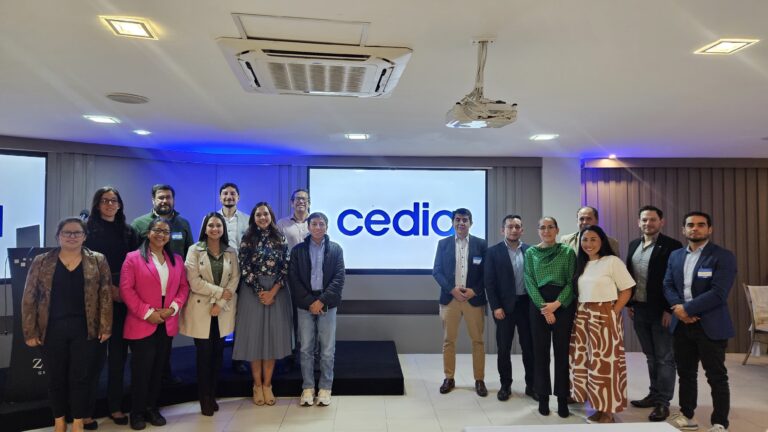The objective of the workshop was to evaluate a tool that allows generating a comprehensive ESG diagnosis

With the mission of moving towards a more sustainable future in Ecuador, the Ecuadorian Corporation for the Development of Research and Academia, CEDIA, led the ESG (Environmental, Social and Governance) Diagnosis Co-construction and Prioritization Workshop. This event brought together several higher education institutions in the country to identify and prioritize relevant and urgent issues that must be addressed from academia for a positive impact on communities.
The objective of the workshop was to evaluate a tool that allows generating a comprehensive diagnosis that identifies critical challenges in the Environmental, Social and Governance areas, and establish a clear roadmap to prioritize actions aligned with the Sustainable Development Goals (SDGs) and other international standards.
During the day, participants worked on creating a tool adapted to the Ecuadorian reality, seeking to reach a consensus on the concept of sustainability in the territory.
Gabriela Astudillo, head of the Sustainability and Social Responsibility area of CEDIA, welcomed the attendees, underlining the importance of this diagnosis within the framework of the Corporate Social Responsibility ecosystem in the country. "This workshop is an opportunity to align our actions and make decisions that truly impact positively on our communities," said Ella Astudillo. Her intervention highlighted CEDIA 's key role in leading initiatives that promote sustainability in the education sector.
The event featured the participation of Dr. Víctor Rafael Martin-Fiorino, a renowned academic and international consultant in applied ethics and sustainability. With a Doctorate in Philosophy from the Catholic University of Leuven, Belgium, Dr. Martin-Fiorino has worked extensively in social responsibility and quality education, collaborating with universities and organizations in Latin America and Europe. His presentation offered a comprehensive review of the key concepts in sustainability and social responsibility, focusing on the Environmental, Social and Governance dimensions, as well as the main global trends and relevant case studies.
Dr. Martin-Fiorino stressed the importance of approaching sustainability not only from a theoretical perspective, but also by applying these concepts to local realities. "Sustainability is a path that we must travel together, ensuring that our actions are based on a solid ethical framework and aligned with the challenges and opportunities we face in our territories," he said during his speech.
Throughout the workshop, a collaborative environment was fostered in which participants, coming from different academic institutions, shared ideas and experiences. This exchange allowed us to enrich the process of co-construction of the ESG diagnosis, ensuring that the proposed solutions are meaningful and applicable in the Ecuadorian context.
The workshop concluded with a work session in which the bank of questions was presented and the proposal of the most relevant dimensions of institutions in the Ecuadorian context was evaluated, prioritizing the most relevant indicators. This methodology will allow participating institutions to adopt concrete and effective measures to move towards more sustainable and responsible management, aligned with the SDGs and international standards.
With this workshop, CEDIA reaffirms its commitment to sustainability and its role as a leader in promoting responsible practices within the Ecuadorian academic sector, marking a milestone in the construction of a more equitable and sustainable future for the country.

